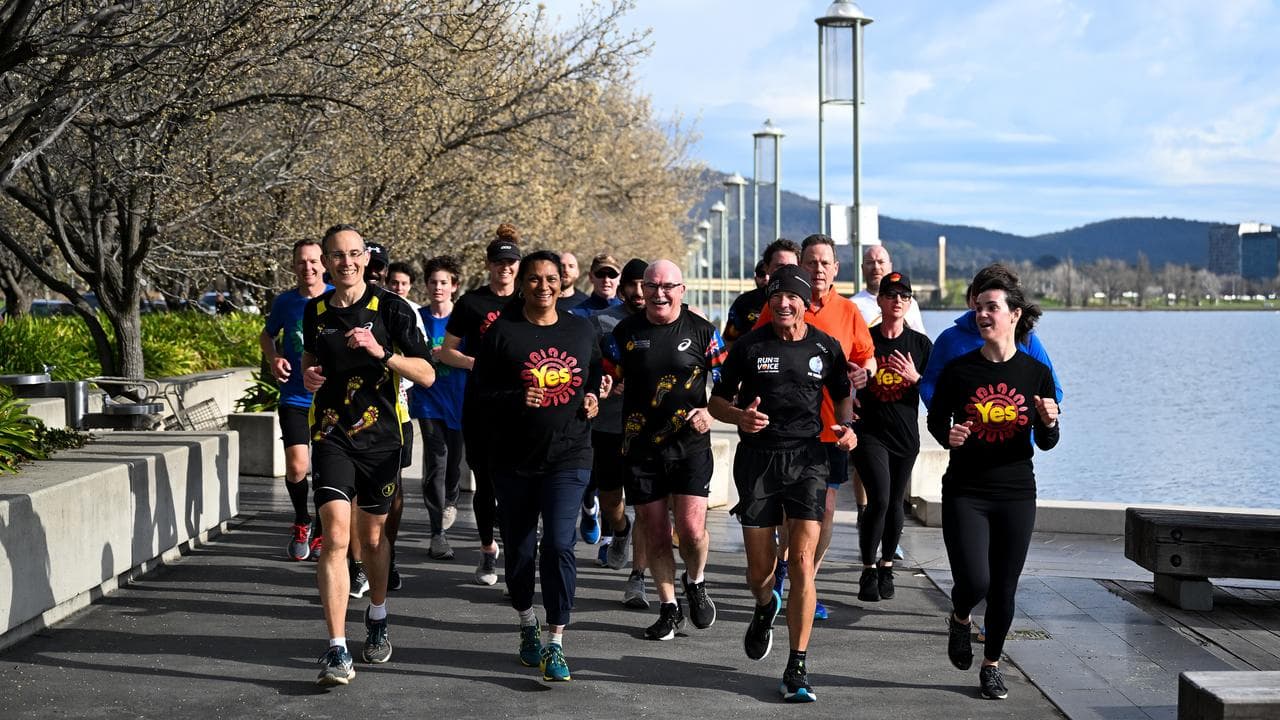
Polls showing strong support in some states for a 'no' vote at the Indigenous voice referendum is not diminishing the prime minister's confidence of an affirmative result.
Ahead of an announcement on Wednesday to confirm a date for the referendum, Anthony Albanese was in Western Australia on Monday spruiking the constitutional proposal.
The most recent state polling, by Resolve, put support for the 'yes' case at 44 per cent in WA, 41 per cent in Queensland and 46 per cent in NSW and SA.
The 'yes' case was strongest in Tasmania (55 per cent) and Victoria (51 per cent).
The referendum will require a majority of votes in a majority of states to pass.
"What we'll be doing is campaigning positively, because this is a positive campaign. This is about recognising First Nations people in our founding document, the constitution, and it's about listening to Aboriginal and Torres Strait Islander people," he told reporters in Perth.
The prime minister will announce the referendum date in Adelaide, with South Australia being seen as a key battleground for the voice.
Associate professor at Curtin University law school Hannah McGlade said a fall in support for the voice in WA was concerning.
She said controversy surrounding recent Aboriginal heritage laws in the state, which had been overturned by the WA government, contributed to the drop in the 'yes' vote in polls.
The heritage laws, which came into effect in July, aimed to protect Indigenous cultural sites following the destruction of the 46,000-year-old Juukan Gorge rock shelters by mining giant Rio Tinto.
But the laws sparked a backlash among farmers and landowners, saying it would be expensive and unwieldy for them to make changes to their property.
"It has been a significant contributor, I would believe, to the decline in support for a voice," Ms McGlade told AAP.
"The legislation was poorly drafted and, unfortunately, Aboriginal people are bearing the brunt of government ineptitude."
She said the 'yes' campaign had not been as proactive in the state as they should have been, given the low levels of support for change in the state in the 1967 referendum to count Indigenous people in the census.
"WA and Queensland have long histories in regard to Aboriginal people that haven't been positive, and we saw that in the 1967 referendum where WA had the highest 'no' vote in the nation, followed by Queensland," Ms McGlade said.
'Yes' campaigners are also ramping up efforts in WA, with former Liberal foreign minister Julie Bishop joining her Labor successor Penny Wong to hand out flyers advocating for the voice.
Another former Liberal MP Pat Farmer arrived in Canberra on Monday on a 14,000km run around the nation to promote the 'yes' case.
Mr Farmer told supporters it was important particularly for older generations to get behind the voice, as there may not be another opportunity for reconciliation for some time.
"If things are driven from the ground up, to parliament to the decision makers, then we end up with better policy," he said.
Opposition Leader Peter Dutton said the voice would not assist those in regional communities.
"I don't believe that the prime minister's proposal on the voice is in our country's best interests," he told reporters in Brisbane.
"I don't believe it will provide assistance to people ... where we see a desperate situation for Indigenous Australians."




